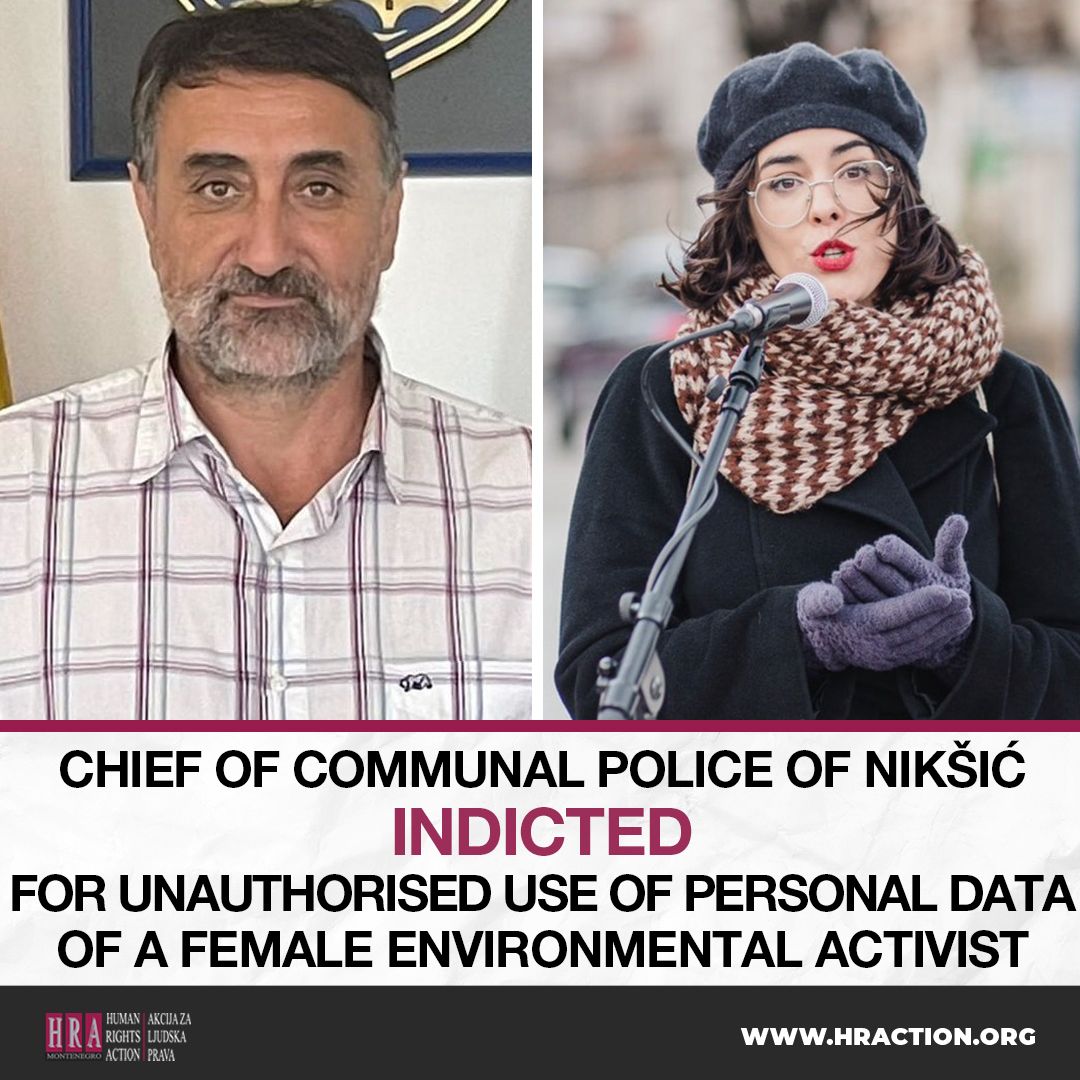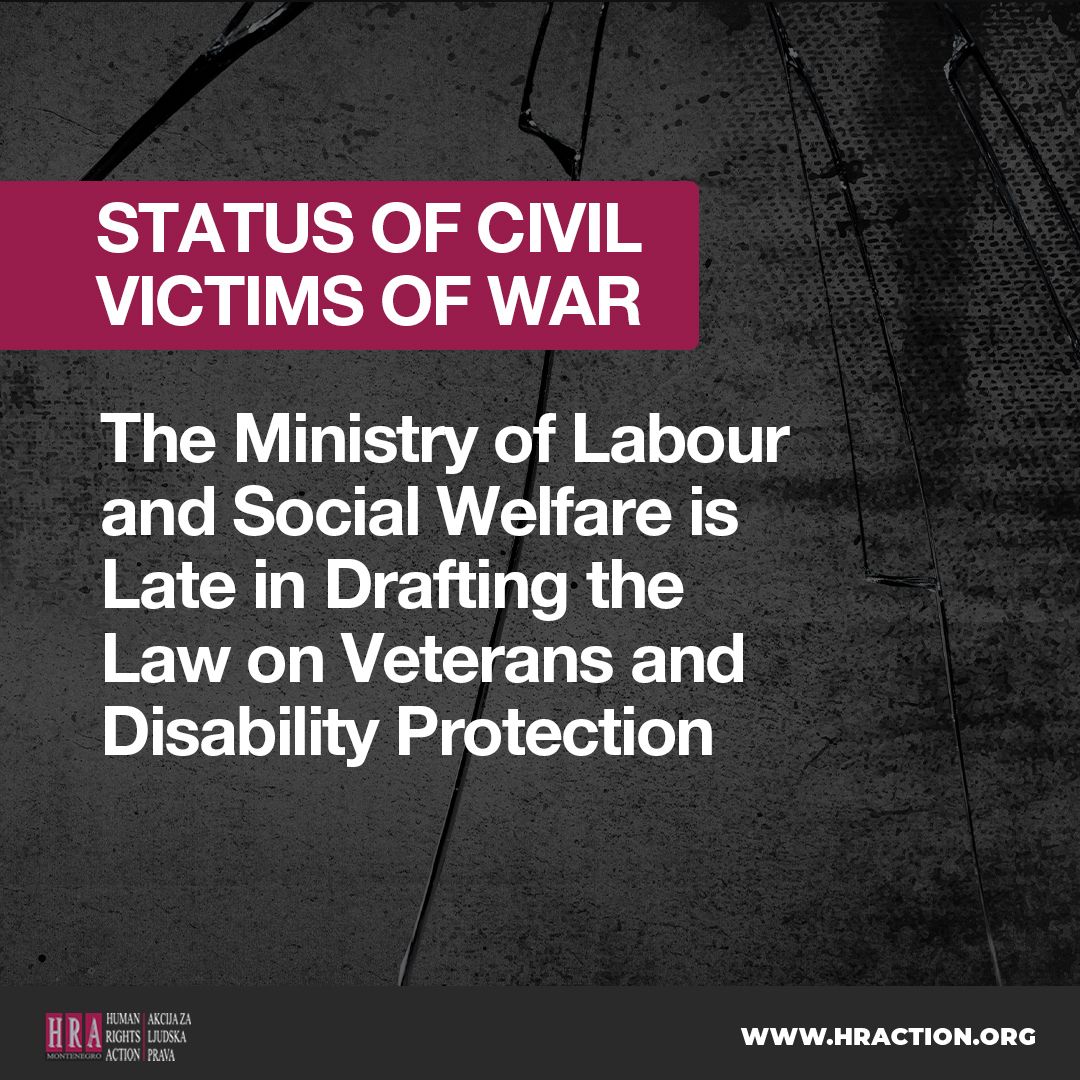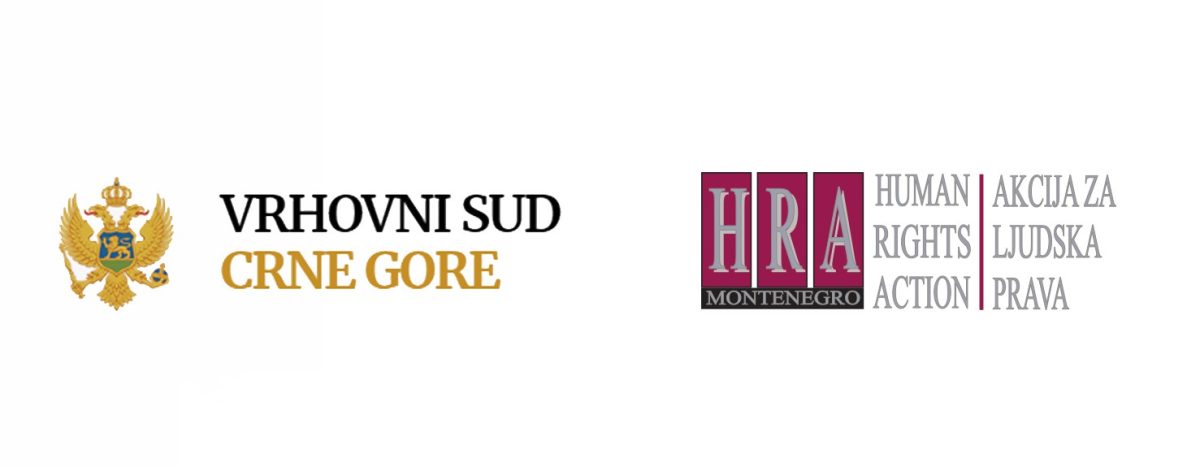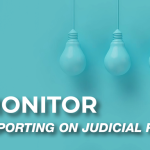
Chief of Communal Police of Nikšić Indicted for Unauthorised Use of Personal Data of a Female Environmental Activist
26/03/2024
STATUS OF CIVIL VICTIMS OF WAR – The Ministry of Labour and Social Welfare is Late in Drafting the Law on Veterans and Disability Protection
27/03/2024Response to the Reaction of the Supreme Court of Montenegro: WE DID NOT SAY THE SAME JUDGES WHO HAD VOTED FOR VESNA MEDENICA HAVE NOW BOYCOTTED THE CANDIDATES FOR PRESIDENT OF THE SUPREME COURT. THE BOYCOTT WAS LAWFUL, BUT IT WAS INAPPROPRIATE IN VIEW OF THE INSTITUTION IN QUESTION AND THE COUNTRY’S SPECIFIC POSITION

Yesterday, on 25 March, in a reaction that was published on the official website under the title “It is unacceptable to speculate about the names of Supreme Court judges based on assumptions”, the Supreme Court of Montenegro criticised the Human Rights Action (HRA) for “speculating about the results of the secret ballot in the election of the President of the Supreme Court of Montenegro” and “the names of judges”, and for contesting the judges’ right to vote by invalid ballots. The reaction was focused on the views that were expressed in the article that appeared in the daily newspaper Dan on 24 March 2024 under the title “Are the judges electing the candidate for president of the Supreme Court or boycotting the election: the voting is secret but the shame is public”.
All the above claims regarding the Human Rights Action (HRA), which were contained in the reaction of the Supreme Court, are untrue. The fact is that, when asked whether we suspected that four judges who had voted for Vesna Medenica’s third term in 2019 would now boycott both candidates who have met the requirements for election by using invalid ballots, the HRA told the journalist of Dan that this is not something that will be possible to establish due to the fact that the voting was secret. The same was written in the article. We never claimed that precisely those four judges were among the ones who decided to boycott the election.
The HRA representative explained that, staff-wise, today’s Supreme Court is not the same as the court that, in 2019, voted for Medenica’s unconstitutional third term (without a single invalid ballot), that there are now 13 new judges, and that only the above four have remained from the era of Vesna Medenica. In its statement, the Human Rights Action did not mention the names of the judges. However, Dan did. However, we do not see any problem with this, as their names are a matter of public information, which in democratic societies is never hidden.
The Human Rights Action criticised voting with invalid ballots as inappropriate, not as unlawful. We did not use a single word to dispute someone’s right not to vote by submitting an invalid ballot. Our representative clearly said the following: “Although judges do have the right to vote that way too, we believe that it is inappropriate not to run for office, but to vote against all who did run and were ready to take responsibility at a time that is crucial for reforms and accession to the European Union”.
Our goal is to encourage the use of the right to vote in the general interest of filling the last high judicial office, so that Montenegro can prove that it is able, after three years, to restore the regular operation of the Supreme Court.
We criticised the judges who deliberately blocked the election of the president of the Supreme Court the same way we criticised the MPs who blocked the election of judges of the Constitutional Court. We do not see why, in this particular case, judges should be exempt from criticism.
We hope that in the 8th attempt – so as to facilitate the progress of the society and faster accession to the European Union – the Supreme Court will elect a legitimate candidate for president. We also hope that they will receive help in doing so, in the form of first amending the law to make it possible to elect the Supreme Court president by a simple majority of votes.
Tea Gorjanc Prelević, Executive Director of the NGO Human Rights Action







 English
English